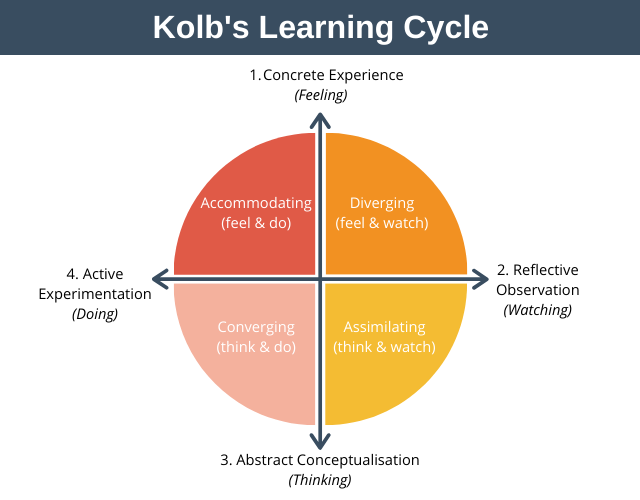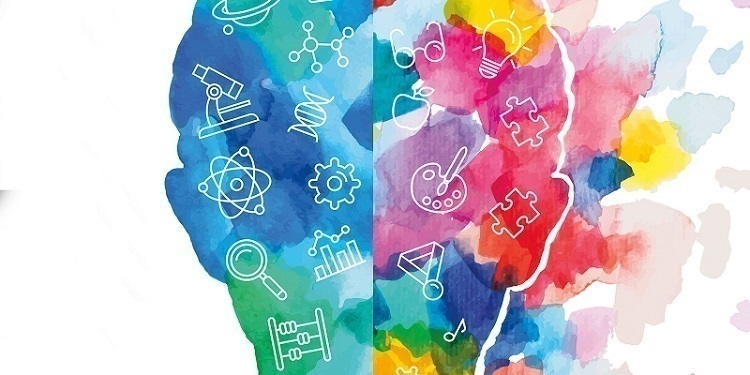David Kolb published the learning styles model in which he developed the learning style inventory in 1984.
Kolb’s experiential learning theory works at two levels: a four-stage learning cycle and four distinct learning styles. Much of Kolb’s theory has to do with the student’s internal cognitive processes.
Kolb states that learning involves the acquisition of abstract concepts that can be applied flexibly in a variety of situations. In Kolb’s theory, the impetus for the development of new concepts is provided by new experiences.
Tags: 4 learning styles, david kolb, experiential learning, four types of learning models, kolb learning style inventory, learning styles, Learning Styles test, personality test





Very interesting learning exercise.
80% true
Very good questionnaire
Powerful learning session
Its very interesting
Thanx
Active Experimentation needed …this is very interesting!
May i have your opinion about my answers please?
Good
They are interested in people, tend to be imaginative and emotional, and tend to be strong in the arts. People with divergent styles prefer to work in groups, listen with an open mind, and receive personal feedback.
Converging. I would say half of the assessment might fit me, but it is nor particularly correct as an assessment of me.
.
It is a great way to know more about yourself.
Nil
1. How might an understanding of the differences between your learning style and those of the people you work with enhance your communication and problem-solving approaches?
A: According to Kolb, there are four different learning styles. I have learned that people have varying styles of learning which in reality, might sometimes be a blend of two or more. This can affect their approaches to problem-solving. This new knowledge would therefore help me understand and appreciate the fact that only one learning style is not enough to proffer solutions to all the intricacies of life rather, a blend of our learning styles makes teamwork more effective.
2. What are your dominant styles and how might they influence your communication with your colleagues and people experiencing mental illness?
A: My major learning style is Assimilating which mostly involves letting others do the talking while I focus on critical and logical thinking through the process. Even though this is sometimes misunderstood as paying divided attention to the subject matter, it could negatively affect my relationships with colleagues and clients. I try to make up for this by developing a second learning skill called Converging, where I not only think but try to actively contribute by implementing the plan.
Its a very good section for self assessment
Interesting
This is very categorized and useful.